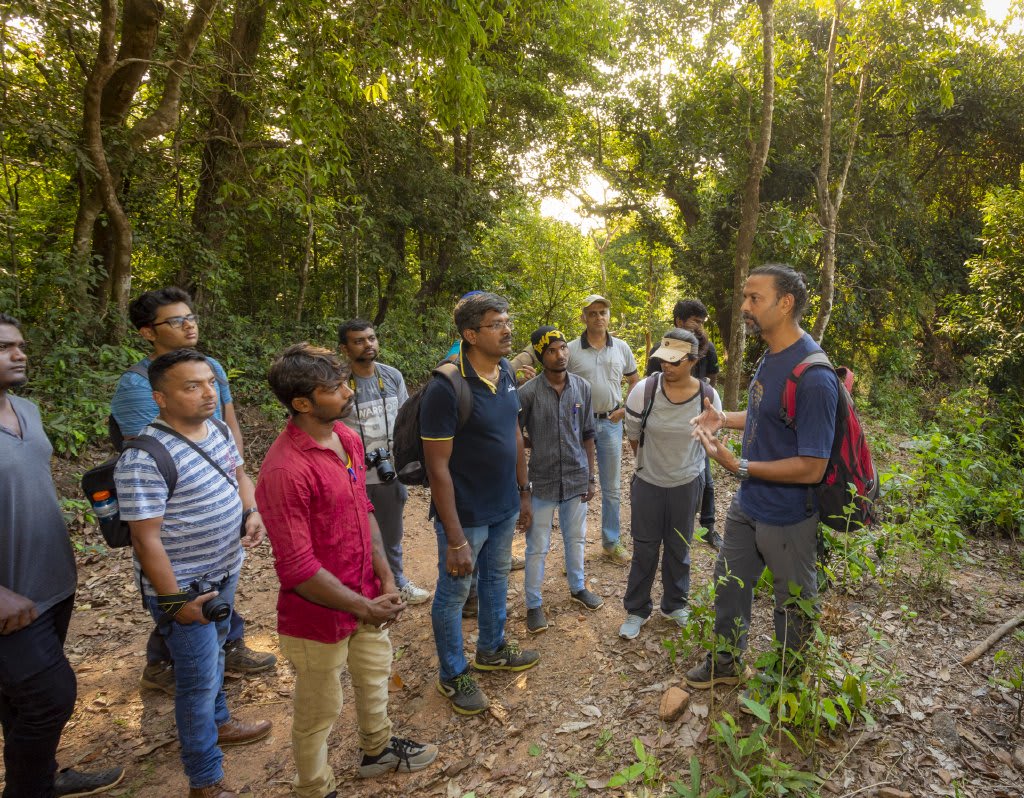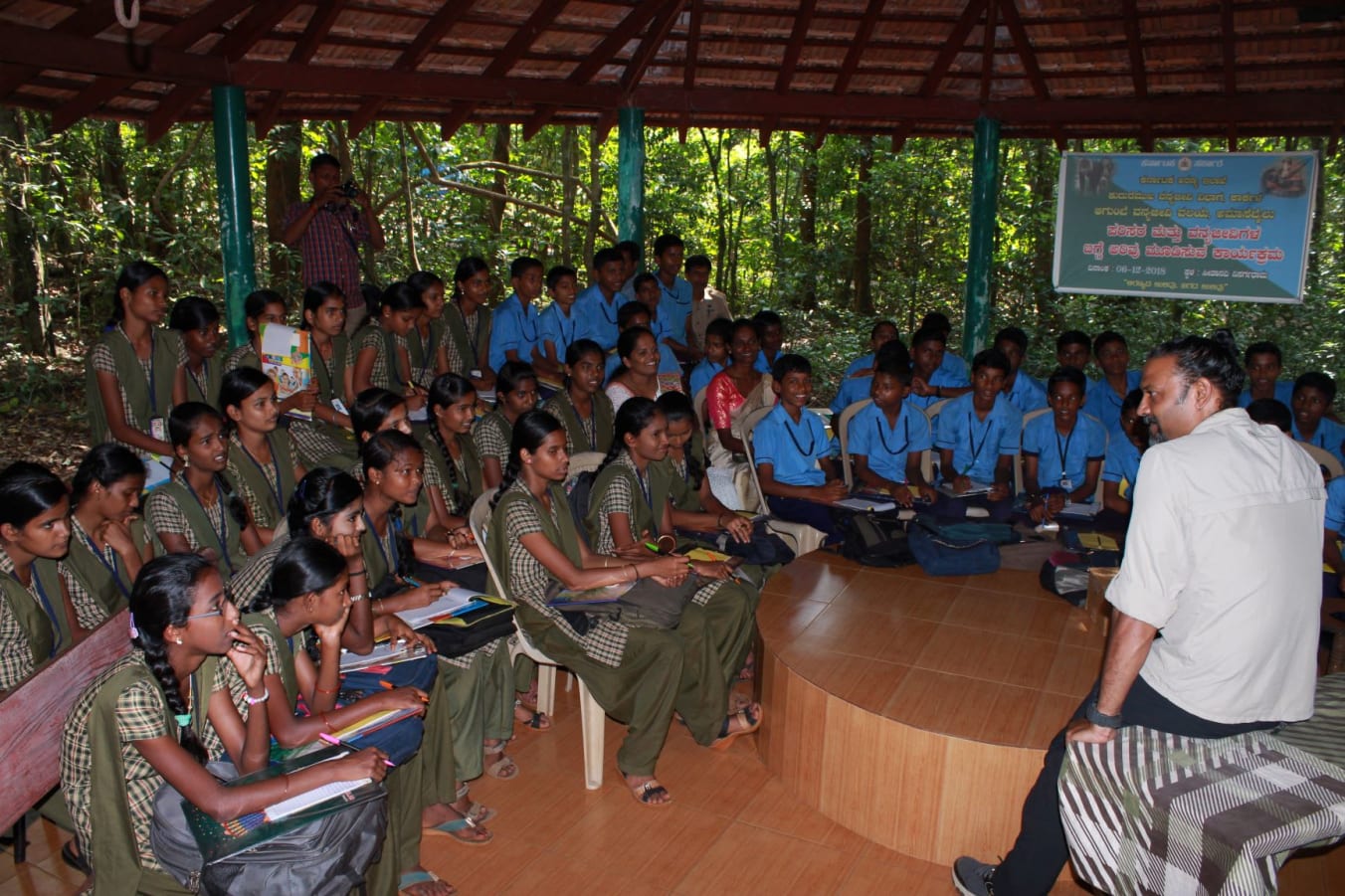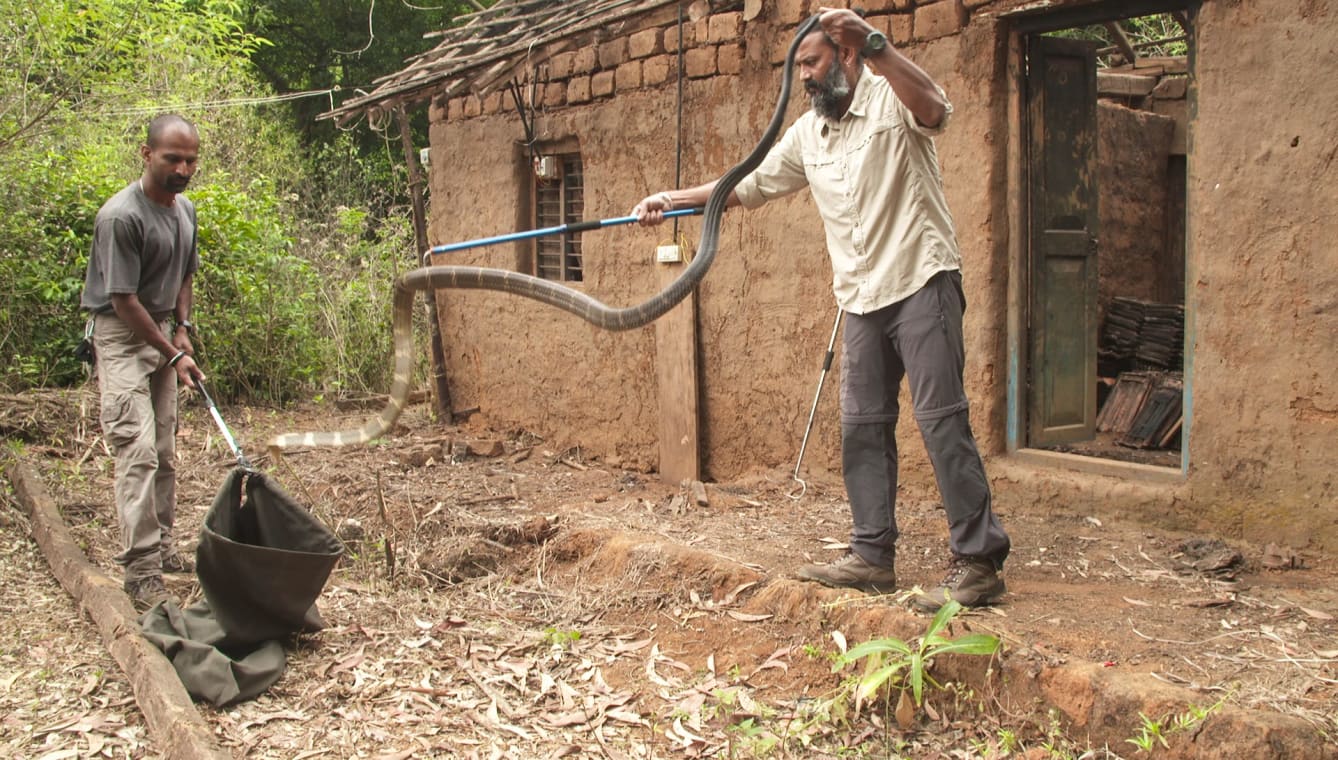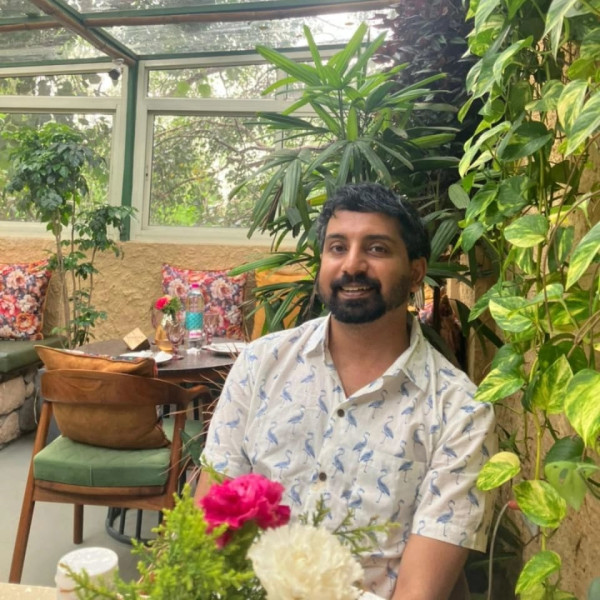 Listen to this article
•
15:34 min
Listen to this article
•
15:34 min
It doesn’t take long for me to figure out that herpetologist Gowri Shankar has a wicked sense of humour. “It can kill you in 15 minutes, and by any estimate, I should have died 350 times,” he jokes when I ask the one question that is bound to irritate him. “Why do you like king cobras so much and not any other snake?”
The rest of his reply is from the heart: “Apart from their incredibly potent venom, I am fascinated by the way a king cobra locks eyes with me. I feel like I can predict the cobra’s next move and it probably feels the same way too. No other snake does this. Interacting with a king is, in a lot of ways, like an interacting with a large mammal such as a tiger or a leopard.”
I am talking to Gowri Shankar at the Kālinga Centre for Rainforest Ecology (KCRE), his brainchild, located in the heart of the rainforests of Agumbe. “I don’t have to deal with annoying neighbours here,” he says, as he leads me to his cottage, which doubles up as his work space when he is not in Bengaluru. He seems almost glad to be taken away from visiting photographers, herpetologists, and filmmakers all vying for his attention, on a busy weekend at the Centre. Totally enamoured by the snake locally known as kalinga, he tells me he is happy to talk snakes all day long.

Growing up in KR Puram on the outskirts of Bengaluru in the early 1990s, Gowri used to find the occasional chequered keelback in his house which was surrounded by paddy fields. He couldn’t fathom why people were afraid of snakes. And he disliked people killing them. “I rescued a snake for the first time when I was 13 years old,” he says, exuding an air of nonchalant daredevilry not uncommon among those who handle snakes.
Despite knowing in his heart that he always wanted to be involved with animals, Gowri got a BCom degree because a career in wildlife was unheard to him back then. After college, he landed a job in a washing machine company, where the constant drone of the large machines reminded him every single day that his true calling lay elsewhere. He soon began volunteering with the Society for the Prevention of Cruelty to Animals (now Karuna) in Bengaluru. In the year 2000, Gowri got in touch with herpetologist and founder of the Madras Crocodile Bank Trust and Centre for Herpetology, Romulus Whitaker. It took him five trips to Chennai before he finally met Rom, following which he started volunteering at the Croc Bank. After spending around fours years there as an education officer, he decided he wanted to study further. But when Rom told him about a Central Zoo Authority project on king cobra breeding in Mangaluru, the opportunity sounded too good to pass up.

After that project, Rom asked Gowri Shankar to explore the Western Ghats on his bike and do some research. That’s how he arrived in Agumbe. Naturally, the locals were initially hesitant to accept a stranger on a bike, with long hair and an ear stud, from Bengaluru. “I slowly built a relationship with them, as I began to answer distress calls to remove king cobras from conflict situations. It was also around this time that I helped Rom set up the Agumbe Rainforest Research Station (ARRS),” he says.
Gowri is keen to dispel the myth that Agumbe is a hotbed of king cobras. Though king cobras are also found in Northeast India, Odisha, Andhra Pradesh, and Southeast Asia, extensive research on the species has been carried out only in Agumbe, which has led to this false perception, he maintains.
The experience of helping set up the research station held him in good stead while establishing the Kalinga Centre for Rainforest Ecology in 2012. Today, the Centre is a vibrant hub of knowledge-sharing for students, researchers, photographers, filmmakers, and tourists. “I especially enjoy sharing my knowledge with students. We conduct a lot of educational programmes for school students. It gives me great personal satisfaction when a kid from the schools we visit turns up here to volunteer. I’d pick that any day over the doctorate degree that I am currently pursuing.”

Gowri admits that juggling multiple projects while pursuing his PhD degree is not an easy task. He hasn’t been able to conduct as many Scientific Training on Reptile Management (STORM) workshops as he would have liked to. STORM is a series he started in 2012 to help amateur snake handlers and rescuers learn correct and ethical methods of snake handling. Improper handling of snakes and other reptiles distresses him immensely.
“There are so many videos of unprofessional guys handling snakes on the Internet, which is setting a very bad example for youngsters interested in herpetology,” Gowri says. Encouraged by his friends he has started posting his own videos. “With so many people posting stunts, it is important that someone show them the correct way to handle a snake,” he asserts.

Gowri is also deeply concerned with the habitat fragmentation occurring around Agumbe, a place that has become home. “People are edging closer and closer to the forest. The reason why a king cobra enters a house is because it was built in a place it never should have been. If encroachment doesn’t stop, conflict won’t stop, and that doesn’t bear well for their survival,” he rues.
But all is not gloom and doom. He also knows how to look on the bright side. One of the reasons why locals of Agumbe call rescuers is because they have traditionally revered the king cobra. Gowri also attributes it to the tolerance and awareness generated about the species over the years. “Now when someone finds a king cobra nest close to their house, they call the forest department, who will put a fence around it. They know not to disturb the site, but at the same time, we can’t expect them to be okay with 20-25 king cobra hatchlings hanging about their house, which is why we conduct nest monitoring programmes.”

Like their father, Gowri’s children too are in love with the Agumbe rainforest. They are happy to bunk school in Bengaluru to escape to the forest, which is where their father believes real learning happens. I watch his son playing with other children and tell myself that this child of the forest is certainly never going to work at a washing machine company.





